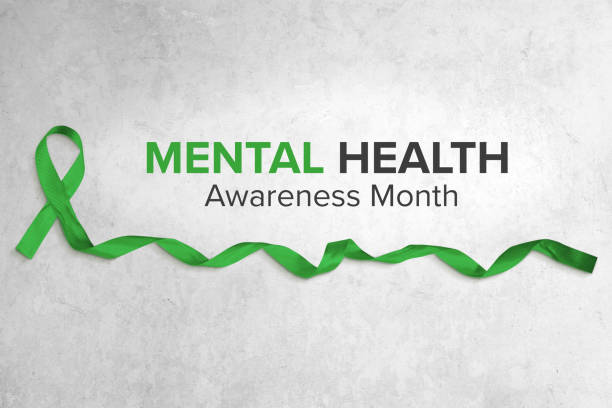Introduction
Mental health awareness is essential for creating a supportive society where individuals feel empowered to seek help and support each other. In recent years, the importance of mental health has become increasingly recognized, yet stigmas and misunderstandings persist. This article delves into the significance of mental health awareness, explores ways to promote it, and provides practical tips for supporting mental well-being.
What is Mental Health Awareness?
Defining Mental Health Awareness
MHA refers to the efforts to educate people about MH conditions, reduce stigma, and encourage open discussions about mental well-being. It involves recognizing the signs and symptoms of mental health issues, understanding the impact they can have on individuals’ lives, and knowing how to access appropriate resources and support.
The Importance of Mental Health Awareness
Promoting MHA is crucial because it fosters a culture of understanding and acceptance. By raising awareness, we can help break down the barriers that prevent people from seeking help, reduce discrimination, and encourage early intervention. Mental health awareness also plays a vital role in preventing mental health crises and improving the overall quality of life.
Key Aspects of Mental Health Awareness
Recognizing the Signs of Mental Health Issues
One of the first steps in promoting MHA is recognizing the signs of MH issues. Common symptoms include prolonged feelings of sadness or hopelessness, anxiety, changes in sleep or eating patterns, withdrawal from social activities, and difficulty concentrating. By being aware of these signs, individuals can identify when they or someone they know might need help.
Reducing the Stigma Around Mental Health
Stigma is one of the biggest barriers to MHA. It prevents people from seeking help and can lead to feelings of shame and isolation. To combat this, it is essential to foster an environment where mental health is treated with the same importance as physical health. Open conversations, education, and sharing personal stories can all contribute to reducing stigma.
Supporting Mental Health in the Workplace
Workplaces play a significant role in MHA. Employers can create supportive environments by offering mental health resources, promoting work-life balance, and encouraging employees to take care of their well-being. Training managers to recognize signs of stress and mental health issues can also ensure that employees receive the support they need.
The Role of Education in Mental Health Awareness
Education is a powerful tool for promoting MHA. Schools, colleges, and community organizations can implement mental health education programs that teach people about mental health conditions, coping strategies, and how to seek help. Early education can also help young people develop resilience and emotional intelligence, reducing the likelihood of mental health issues later in life.
How to Support Someone with Mental Health Issues
Supporting someone with mental health issues requires empathy, patience, and understanding. Listening without judgment, offering reassurance, and encouraging them to seek professional help are crucial steps. It’s also important to educate yourself about their condition so that you can provide informed support.
Mental Health Awareness Campaigns and Initiatives
National and Global Mental Health Awareness Days
Numerous national and global campaigns are dedicated to raising MH. These include World MH Day, MHA Month, and campaigns by organizations such as the National Alliance on Mental Illness (NAMI) and the World Health Organization (WHO). Participating in these initiatives can help spread awareness and support those affected by MH issues.
The Power of Social Media in Promoting Mental Health Awareness
Social media platforms offer a powerful way to promote MHA. By sharing informative content, personal stories, and resources, individuals and organizations can reach a wide audience. However, it’s essential to use social media responsibly, as misinformation can also spread quickly.
The Role of Advocacy in Mental Health Awareness
Advocacy is another critical component of MHA. Advocates work to influence policies, increase funding for mental health services, and ensure. That mental health is prioritized in public health agendas. Supporting advocacy efforts can lead to systemic changes that improve access to mental health care and reduce disparities.
Conclusion
Promoting MHA is vital for creating a supportive and understanding society. By recognizing the signs of mental health issues, reducing stigma, supporting. Those in need, and advocating for better mental health resources, we can make a positive impact on individuals’ lives. Whether through education, workplace initiatives, or participation in awareness campaigns, everyone can play a role in fostering MHA.
FAQs
Why is mental health awareness important?
MHA is crucial because it helps reduce stigma, encourages people to seek help, and promotes early intervention. It also fosters a culture of understanding and support, improving the overall well-being of society.
How can I promote mental health awareness in my community?
You can promote MHA by participating in awareness campaigns, sharing resources on social media, organizing community events, and educating others about the importance of MH.
What are some common signs of mental health issues?
Common signs include prolonged sadness, anxiety, changes in sleep or eating habits, withdrawal from social activities, and difficulty concentrating. Recognizing these signs is the first step in seeking help.
How can workplaces support mental health awareness?
Workplaces can support MHA by offering MH resources, promoting work-life balance, training managers to recognize signs of stress, and encouraging open communication about MH.
How can I support a loved one with mental health issues?
Support your loved one by listening without judgment, offering reassurance, avoiding unsolicited advice, and encouraging them to seek professional help if needed.
